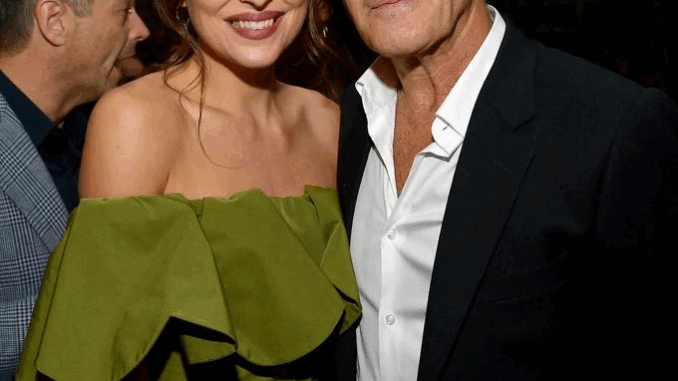
When Dakota Johnson first stepped into the world of Fifty Shades of Grey, she was 24 — curious, fearless, and maybe a little naïve about what fame could do. The daughter of two Hollywood icons, she thought she’d seen it all. But nothing could have prepared her for what came next: the overnight transformation from a rising actress to a global phenomenon, her face plastered across billboards, her name whispered in the same breath as both admiration and controversy.
“I thought I knew who I was,” she once said quietly, “but fame doesn’t just change how people see you — it changes how you see yourself.”
For Dakota, Fifty Shades wasn’t just a career-defining role. It was a turning point that reshaped her relationship with acting, love, and identity itself.
In the years that followed, she learned that the cost of visibility could be high. “Everyone thinks they know you,” she explained in a recent interview, “but they’re really just seeing a projection — an idea of you built from the characters you play or the headlines they’ve read.”
Her on-screen chemistry with Jamie Dornan became the subject of endless speculation. Fans fell in love with them — not just as Christian and Ana, but as something that might exist beyond the cameras. Yet Dakota never played into it. She smiled through the rumors, kept her composure, and when asked about the real nature of their connection, she only ever said: “Jamie’s my friend. We went through something very specific together. No one else will ever understand that.”
Behind the poise, though, there was exhaustion — the kind that comes from constantly being misunderstood.
“After Fifty Shades, I had to rebuild myself,” she confessed. “Not because I regretted it, but because I needed to remember who I was before it.”
She began choosing roles that challenged her — strange, indie, unapologetically offbeat characters that didn’t fit the glossy mold Hollywood had built for her. Suspiria, The Lost Daughter, Cha Cha Real Smooth — films that showcased a Dakota no one had really seen before: raw, strange, magnetic, and unafraid of discomfort.
Those choices weren’t about rebellion. They were about reclamation.
In love, too, she became more private. Her long-term relationship with Chris Martin was quiet, almost secretive by Hollywood standards. No flashy red carpets, no coordinated press moments. Just two people living their lives away from the noise. When asked about it, Dakota smiled: “I’ve learned that love is better when it belongs to you, not the world.”
Still, fame has its way of circling back. Every photo, every expression, every ring on her finger gets dissected online. And yet, Dakota seems to have found peace in the chaos. “You can’t control what people say,” she said, “but you can control what you give them.”
As she enters this new era of her career — as an actress, a producer, and recently, a global fashion ambassador — Dakota Johnson radiates a confidence that feels earned, not inherited. She’s weathered storms most people only ever watch unfold from afar.
“I’m not trying to be perfect anymore,” she admitted. “I’m just trying to be real. And sometimes being real means breaking apart, then putting yourself back together — again and again.”
Now, when people bring up Fifty Shades, she doesn’t flinch. She calls it a “beautiful, strange chapter” — one that gave her more than it took. But it’s clear she’s far from the young actress who once walked into that audition room. She’s built her own identity, one choice at a time, and maybe for the first time, it feels entirely hers.
“I’m proud of that girl,” she said softly, reflecting on her younger self. “She was brave enough to take a risk. And because of her, I get to be who I am today.”
For Dakota Johnson, fame isn’t a cage anymore — it’s a mirror. And for the first time in years, she likes the reflection staring back.